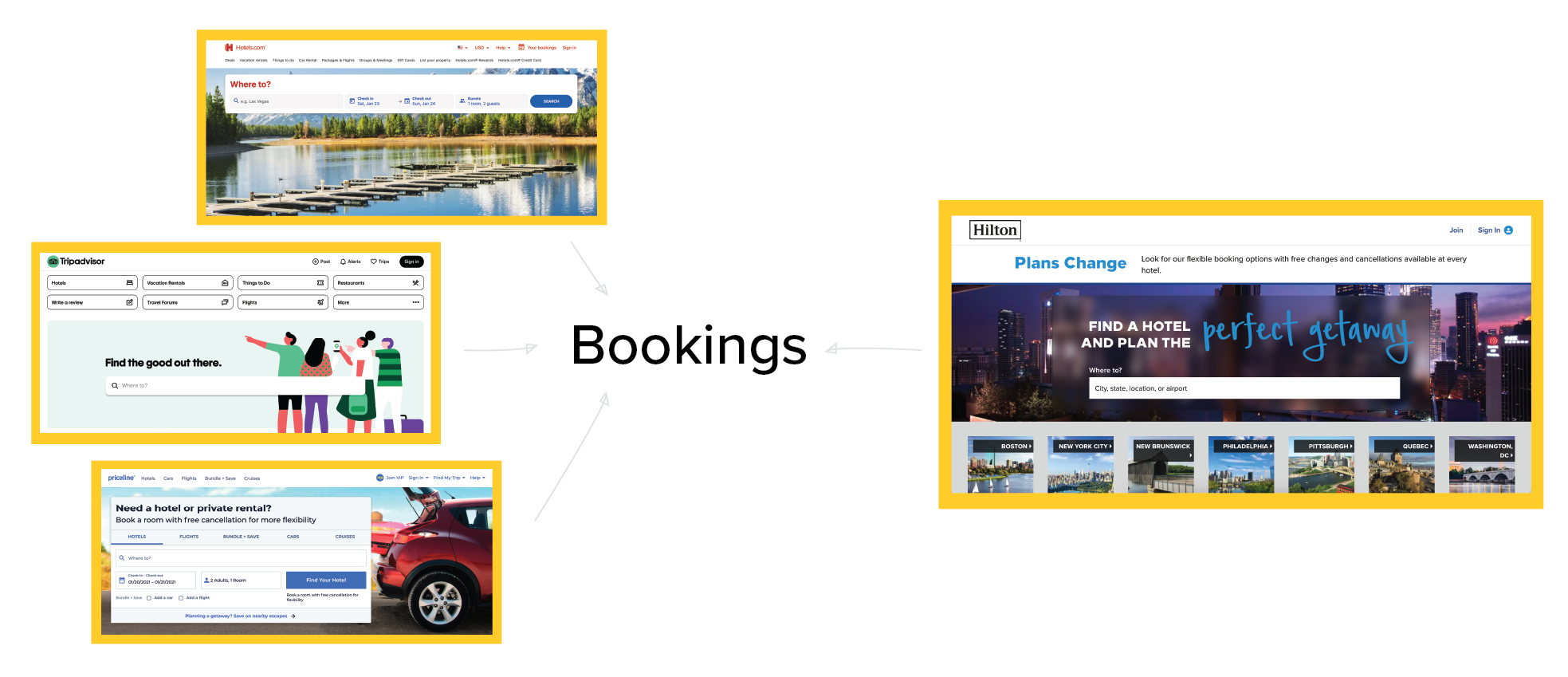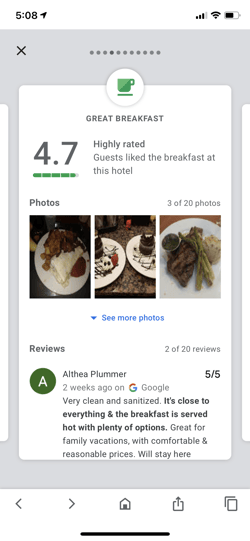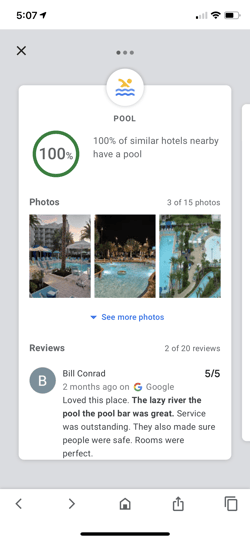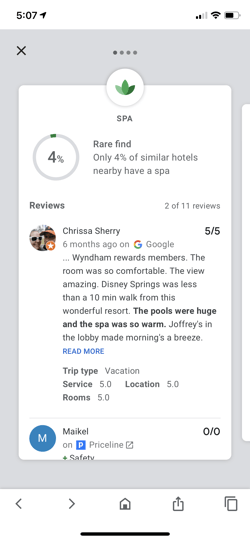- Solutions
- Resources
- Pricing
- Company
Hospitality veteran Justin Essner explores how hotel brands can use review content to help drive customers to book directly rather than from online travel agencies (Hotels.com, TripAdvisor).

For the last several years each hotel brand (Hilton, Marriott, IHG, Hyatt, & Choice) has made a concerted effort to drive more traffic to their direct booking platforms. Hilton even did an all-out marketing campaign called "Stop Clicking Around" with Anna Kendrick to get the message out.
If you’re in the industry you already know this, but for those of us who are not: direct booking negates OTA (Online Travel Agency, eg Expedia, Orbitz) booking fees. Yes, direct booking saves some cash, but more importantly, the hotel owns the customer information. This helps with loyalty programs and direct customer communication, among other things.
I spent over a decade at Hilton and there were several pivotal moments in the relationship between Hotels/Brands and OTAs during my time. I started in the middle of the great recession and hotels had just started to strategically transition away from OTAs for their online distribution. But, at the time what felt like overnight, the group and the corporate hospitality market collapsed in 2009 along with the rest of the economy. So brands turned back to the OTAs. Yes, the OTAs helped revive occupancy in the short term, at the detriment of the average daily rate (ADR). It took hotels years to recover ADR.
A similar pattern occurred ten years prior, following the September 11th attacks.
In the prosperous years between the great recession and COVID, hotels made progress establishing their distribution independent of the OTAs. Offering the best rates to their loyalty customers, digitally native shoppers started to transition away from complete reliance on OTAs. In my experience a minority (20-50%) of a hotel's guests book directly, the remaining percentage usually brought in via OTAs.
Yet again, challenging times in America have come down hard on the hospitality industry. Travel is down because of COVID restrictions. As in 2001 and 2009, hotels are going back to the OTAs to put travelers in rooms.
Recently, after 11 years at Hilton, I joined Widewail, a leader in the reputation management industry. The moment I stumbled upon Widewail I knew my industry needed this. Why? Because a strong review strategy is insanely underutilized in hospitality, and when done right will give hotels a legitimate chance to compete in local search results, fighting to maintain or return to pre-COVID levels of direct booking.
Between 2015-2018, Moz reports a +43% increase in the impact of review signals on ranking.
In 2017, Search Engine Journal published an article highlighting this intersection.
There are different keywords that affect the overall search results. There are many combinations of keywords that searchers put into Google when they are looking for a hotel.
Depending on those keywords it may trigger an ad directly to the OTAs as you see below.
And much like other industries, the OTAs dominate paid search and traditional organic search results. It’s unlikely a single hotel will be able to compete with this.
I did a search for "hotels boston seaport" to explore this further. All of the organic content on the first page is from the OTAs. The first non-OTA entry not appearing until page two.
To understand this further, I asked Widewail's Director of Search, Dave Pye, to explain why he thinks OTAs have an advantage in organic search:
Found below ads and above organic results to every hotel search is the local pack. This is where hotels are most likely going to be able to compete because of a key differentiator, the power of customer reviews. The local pack is the hotel's "island of prosperity". The only section at the top of search where they have a fair fight.
To understand the value of reviews it helps to take a step back and think about Google’s incentives. Google wants to make sure its users have a great offline experience at the businesses they recommend. By observing hotel ratings, review commentary, frequency of reviews (popularity), and to what degree the hotel engages with its customer’s feedback, Google is able to get a good sense for the quality of customer service provided compared to like hotels in the area.
Google describes its approach to ranking as a combination of “relevance, distance, and prominence.” Distance is mostly out of the hotel’s control - but for relevance and prominence, reviews definitely factor in.
As a hotel manager, this is all great news because with a proper strategy in place reviews can be generated and managed at scale, driving your hotel up the search ranks. We have a couple of in-depth guides on the topics:
I also found this notable - Google uses review content to determine the quality of a hotel’s amenities and the uniqueness of that amenity in relation to hotels in the area.



As pent-up travel demand continues to increase it is more important for individual hotels and brands to have a strategy in place to maximize this organic reach Google is offering from their review platform.
A high volume of reviews with favorable ratings will create more visibility in the local pack, putting hotels in a stronger position to drive booking traffic through owned properties.
I've spent the majority of my career in Sales within the Hospitality Space. Originally from the Midwest, this is where I developed a passion for genuine customer service. My desire to always understand how the consumer is evolving led me to WideWail. Our goal is to activate the customer service the Hospitality industry is known for within their facilities to the online community.
Bite-sized, to-the-point, trend-driven local marketing stories and tactics.
U3GM Blog Post Comments